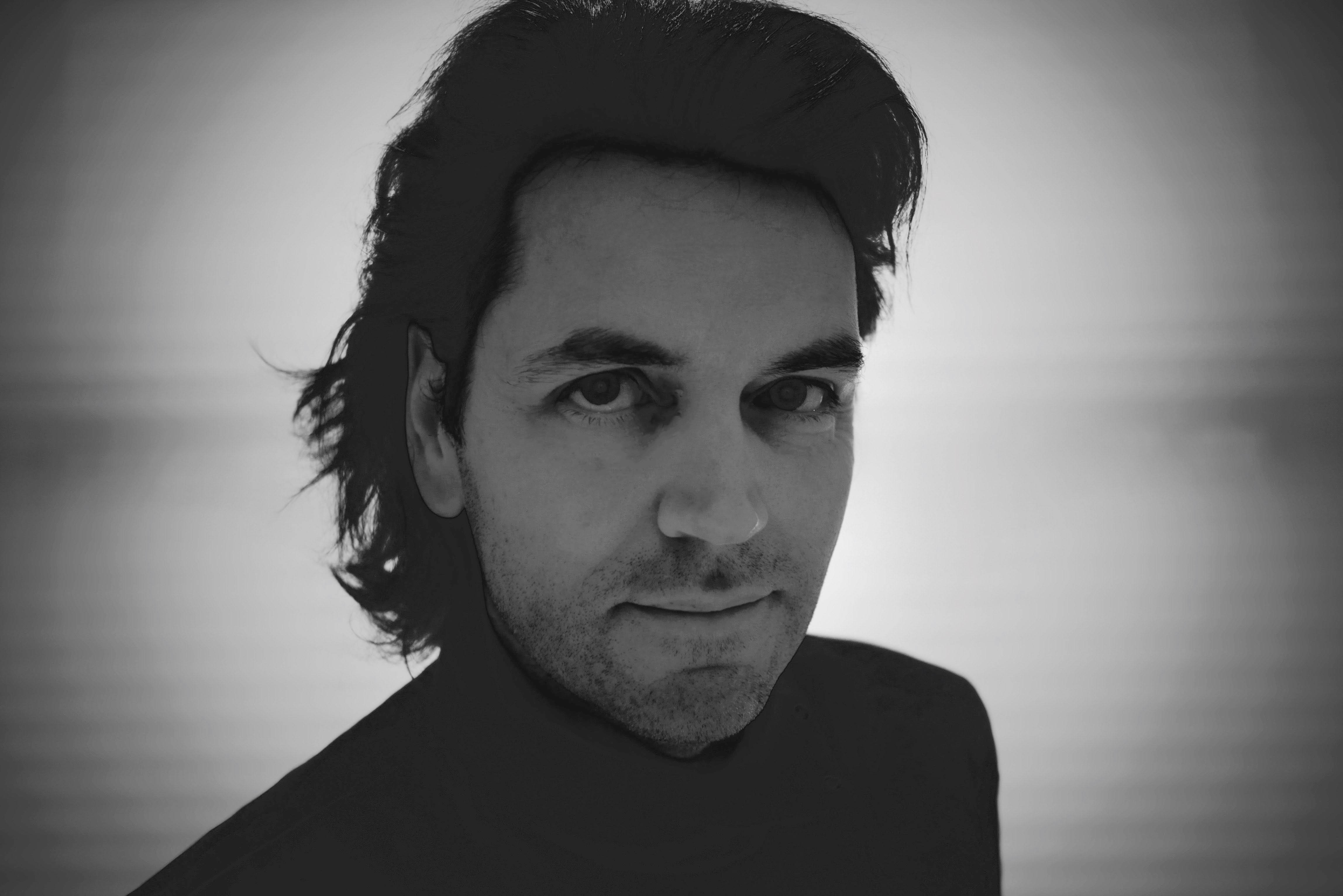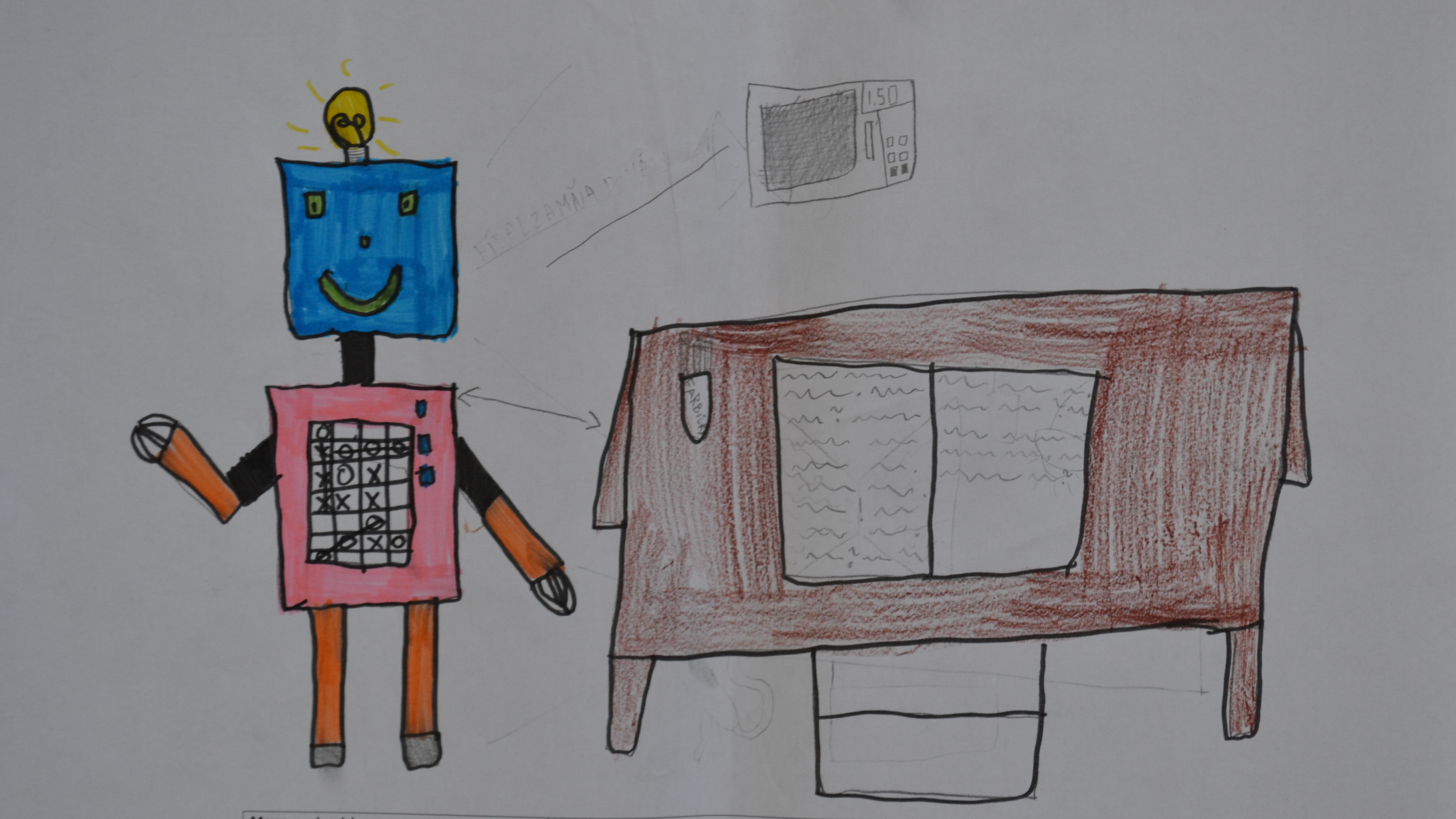Picture © MyMachine Global Foundation: invented by a 10 year old girl: the homework-making-expert-machine.
When I was about thirty years old, I was fortunate to be given -what I consider- a valuable life lesson. At the time, I was some three years into my new job as innovation-enabler for different companies. I was invited by the president of a university to join him to an industry-meets-academia-event in France. This president asked me saying “you are savvy on product- and process innovation, and I know zero about it, so I want you to join me”. Upon our arrival, I noticed how people interacted in a very formal way with the president and how they perceived him as important; well, he was president after all. Then he got on stage and started talking on the subject: product and process innovation. The exact topic he told me he knew nothing about.
I listened to what he was saying and couldn’t but wonder what in the world he was talking about? He was saying weird things with incorrect and incoherent information. I couldn’t believe what I was hearing, and I felt uncomfortable. Then I started looking around me to see whether or not I was the only one doubting what I was hearing. It looked like I was. I went home that night, understanding that people with a specific ‘status’ can say whatever they want towards a broad public outside of a particular niche. Because for most people in the crowds, their position (as President, CEO, Director, “Expert”), ‘covers’ for any mistakes or incorrect information they share. Their capacity seems to double as an ‘Everything-I-Say-Is-True-Machine’. Now that I’ve added additional years of experience in my life, I have seen this happening numerous times in different arenas.
I continued helping a variety of organizations to innovate, from companies, hospitals, (health)care institutes, governments to cultural organizations; connecting them to university labs, engineering labs and also to each other. I started noticing a common thread: a prevalent inability to perform systems thinking instead of linear thinking. Linear thinking is a process of thought following step-by-step progression where a response to a step must be elicited before starting another action. It is based on rules and rationality (or sustained reason) to solve a problem. It is one-dimensional. Systems thinking is an approach to integration, based on the fact that modifying components of a system, causes different outcomes to, and responses from the system. A system is a cohesive conglomeration of interrelated and interdependent parts which can be natural or human-made. Systems thinking is omni-dimensional.
In my observation, most people from the science labs to the executives are paralyzed by their day-to-day jobs and unaware of how they are blocking themselves from valuable knowledge, deep insights and knowhow of the system(s) they are a part of. And that could be their department, their organization or the sector they serve like healthcare, marketing, elderly-care, machine-learning, education, travel or politics. No matter what you do, you are always part of, not one but several systems. Same goes for your products or services.
A couple of years ago, I was working on an assignment with a (small) multinational company. I did a tour of the company, visiting the different product-departments and talking to the engineers working there. Each of them involved in product design for their department within the company. As they were explaining their current technological challenges, I asked them if they were aware that a colleague of them (in that other site on the other side of town) was facing the same problem and also spending a lot of time trying to find the solution? The answer (on all occasions) was ‘no’. Understanding that this being the case inside one company, it’s not hard at all to imagine the loss of insights happening across companies, organizations and industries and in our society at large. That is why cross-industry innovation and networks have been my priority ever since. Because there is so much to learn from each other, and because the moment we understand how systems work and respond, is the moment we will see the interactive nature of all the system’s parameters. Or how pushing one button, will affect a series of other parameters, some of which you can predict and others that will cause an unexpected outcome. Systems thinking expands the range of options available for solving a problem by broadening our thinking. It helps us articulate issues in new and different ways. The principles of systems thinking, make us aware that there are no isolated solutions; choices we make have an impact on other parts of, and the system. By anticipating the implications of each trade-off, we can minimize its severity or even use it to our advantage. Systems thinking, therefore, allows us to make informed decisions.
Through my work, I have understood how intertwined our society is. It truly is. How large the system is that we call our community. For example: a company supplying hospitals, also has software companies as a subcontractor, banks who finance some of their investments, it joins healthcare technology conferences, participates in expert committees for the government, deploys a new human resource strategy with the help of HRM consultants and serves as a fundraiser for several local good causes. The inter-connection in all of our systems and in between them makes our society interesting, thriving and above all: complicated. Very complicated. And that is not a bad thing. On the contrary, it comes natural, and it’s exciting.
That is why we have to accept and embrace complexity inside our own company, in our neighbourhood, in our country, in the world at large. Because complexity is all around us (and even inside us) and it will not fade. Yet, a majority of people are aching for simple answers to this complex world. We see it very clearly in the media and politics. Any politician bringing a simple message -in almost all cases, linear thinking- will get a lot of votes. It boils down to: “here’s the problem” and “this is the solution/reason”: for example: “jobs are lost” because “companies pay too much taxes”, or “the quality of schools is going down” because “teachers are not motivated anymore”. While the actual story is that the education system is incredibly complicated and “lack of motivation with teachers” might be one parameter. Still, in reality, we need to look closer to the fact that the teacher-job has changed over the years. They now have too much paperwork on their hands, low wages, low status, unclear long-term career opportunities, lack of investments in life-long-learning for teachers, inadequate school buildings, too little technology available, and no time for teamwork. So improving the education system will never come from adjusting one single parameter. It can only be the result of systems thinking, where you look at the interaction of all the different settings that as a collective embodies the education system as we know it. The problem is that most people don’t want to, nor have the patience to, or have never learned to, accept that for any issue you encounter, the actual answer is: “it’s complicated and we will need time to dig deeper and find the right (hopefully simple) solutions”.
Now, don’t get me wrong. Accepting complexity does not mean we should never stop thriving for simplicity in workflows, user interfaces, communication, products and services. But simplicity is the most complex status to be engineered. When the world got introduced to the iPhone in 2007, we were struck by how incredibly simple it was to use. But it has only become so intuitive and straightforward, because the Apple designers and engineers accepted the vast complexity of all involved technologies and their role in the system, both hardware and software, from the operating system, to touch technology, to image-processing technology, to user-interfaces. And being receptive and open towards every possible interaction and connection all these have, is how Apple was able to produce this incredible device that is so amazingly simple to use.
There are ample examples of this in health care. Six years ago, I was feeling lethargic and had gastroesophageal reflux (reverse flow of stomach acids into the oesophagus); in my case nothing serious, but genuinely annoying. One doctor -I was unaware but was about to find out, was niche thinking- and gave me the “linear thinking answer”: problem “gastroesophageal reflux”, solution: “take this medication”. I did not follow up on that advise. I looked for a “systems thinking doctor”: not looking at the niche problem, but focusing on the human body as a system. This doctor’s advice was the right, simple answer: lose 20kg of weight, and your body system will be back in balance. I did, and it worked just perfect.
Arriving at the right simplicity starts from accepting and looking closely to complexity. All of this becomes dangerous when someone is labelling themselves as “expert” and enters your business-life “with the promise of “coming to the rescue” – claiming that their knowhow will solve all of your issues. By the way, I have always wondered at what point one is granted the label “expert”. What does it actually mean? The vast majority of experts I have worked with use their “expert”-title as their “Everything-I-Say-Is-True-Machine”. And almost all of them lack a broader scope; even worse, some of them don’t want to expand their knowledge into different fields, afraid of losing their “expert” feeling or status. Others are not even aware they would benefit a lot from it, delivering better consultancy and more meaningful insights.
In general, experts are good at what they are good at: niche-thinking. If your website is loading way too slow, use an expert to fix it. But don’t let this web-development-expert interfere with your online communication strategy. That is something completely different and much more complex. Instead, you need to perform systems thinking for that. For example: if you truly want to understand the potential impact of one component in your communication approach in your organization, be sure to invite all types of “experts” to the meeting: from photographers to web designers, communication officers and customer-relation officers and your engineering and finance department. And your job is to navigate through all the niche-input they give, while you keep the focus on the bigger picture.
Whether your focus is a company, a non-profit, a hospital, a city or a country, a product, a service, a workflow or the effects of a virus, be sure to invite different niche-experts, but foremost include people who are capable of keeping the focus on the bigger picture. People who embrace the complexity of it all. Systems thinkers. In dealing with the bigger picture, do not allow niche experts to fool you with their simple solutions that are off-track and therefore extremely dangerous. Nothing is worse than seeing a -what appeared to sound like a sweet, simple solution – destroy your life or your company or your society, when in fact, if you would have accepted complexity, if you would have looked closer, if you had kept the focus on how everything is interconnected, this could have been prevented. Whatever crisis you are facing, never trust on one type of niche “experts”. That is a huge mistake. Make sure you always focus on the system as a whole. That is important for you to avoid causing a lot of unnecessary stress.
In the end, it’s about you making choices, and you want them to be informed decisions. Accepting the fact that almost everything we know (whether human-made or nature) is complicated, is a necessary step for you to be able to make the right decisions to thrive as a human being, as an organization, as a society.


